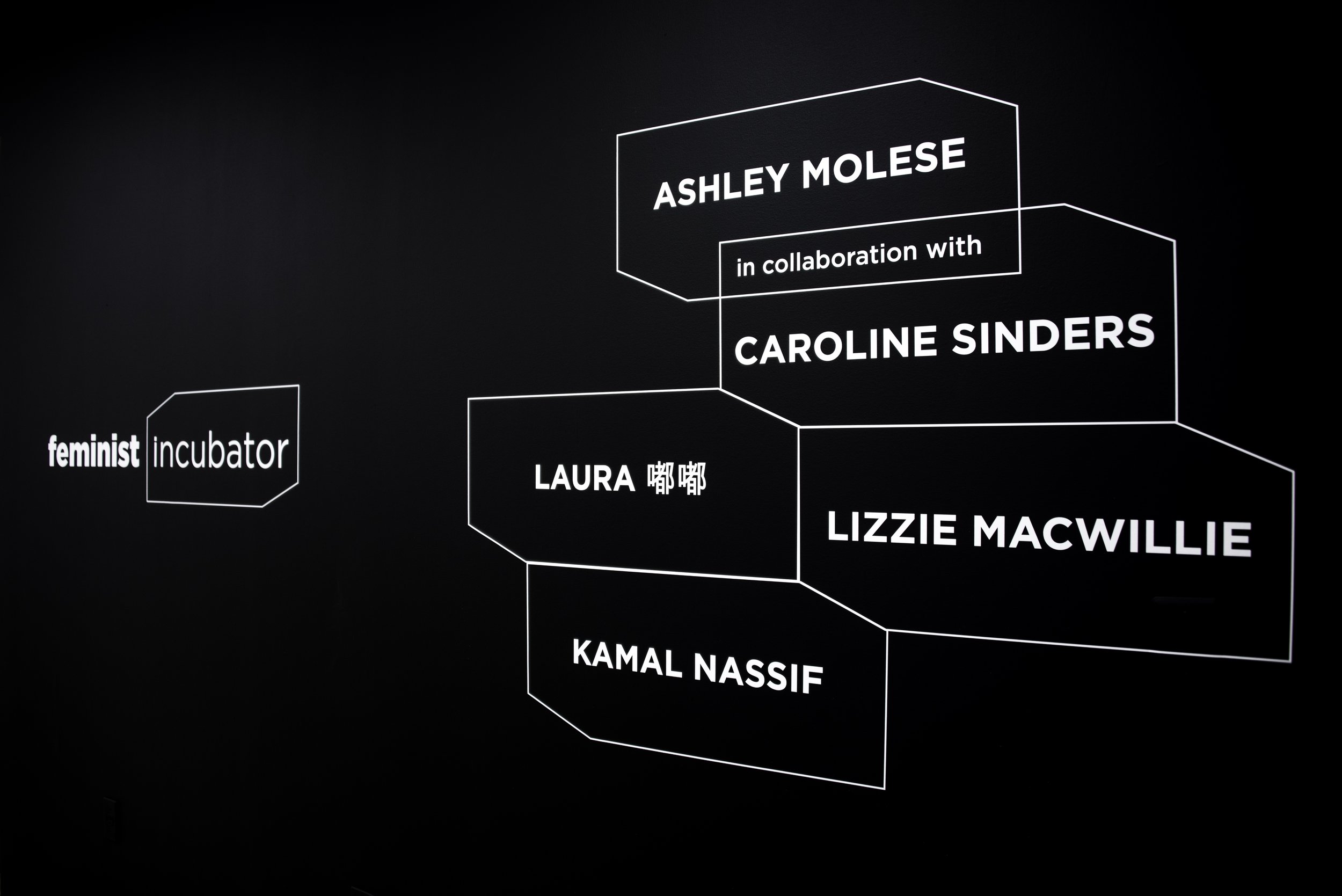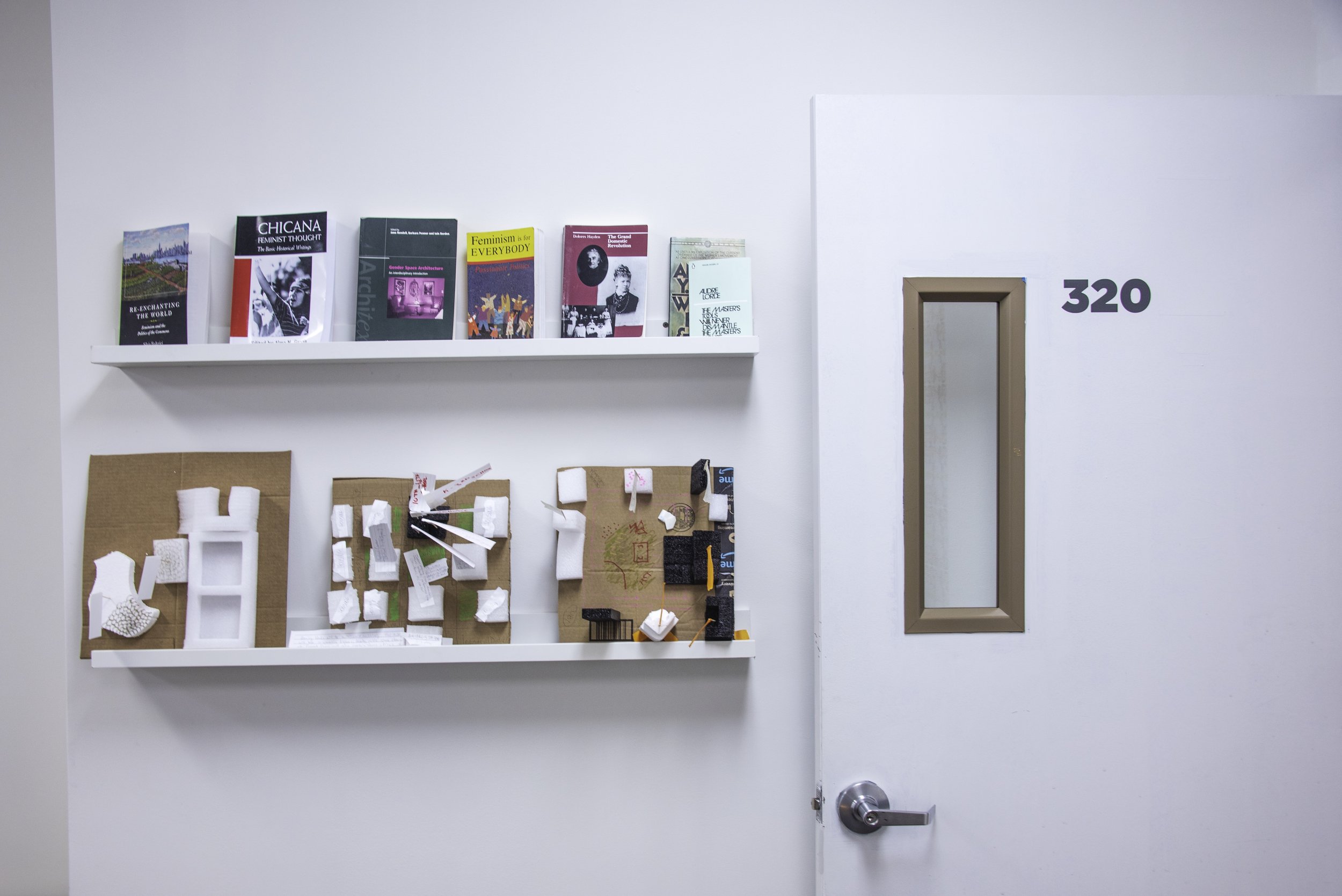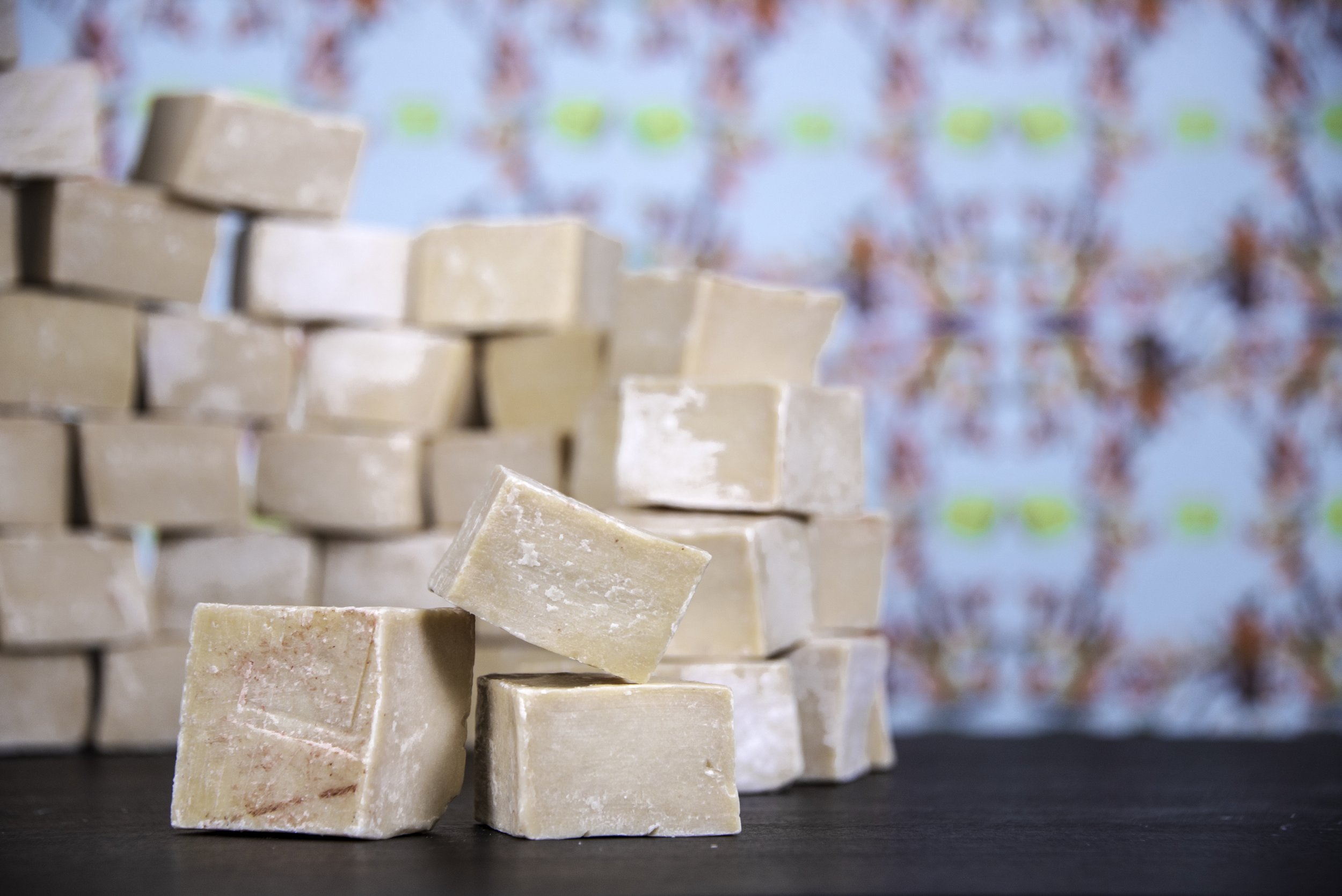




2022-23 FEMINIST INCUBATOR
The Project for Empty Space Feminist Incubator is an annual program for women, femme-identified, and non-binary artists who are interested in intersectionality, contemporary feminist discourse, and future-making. This year, the incubator will provide a physical space for productive and urgent dialogue as a means of catharsis, camaraderie, and education.
The 2022-23 cohort includes Ashley Molese in collaboration with Caroline Sinders, Laura 嘟嘟, Lizzie MacWillie, and Kamal Nassif.
ASHLEY MOLESE + CAROLINE SINDERS






PROJECT OVERVIEW:
Data artist and researcher Caroline Sinders and curator Ashley Molese are building “The Disobedience Toolkit”, a collaborative research project designed as an ongoing body of work discussing the security and privacy considerations around abortion. Issues around protecting ones privacy as they seek abortion care remains a lesser-discussed risk across the United States as rights and access to this medical care becomes more restrictive and criminalized. Ranging from everything like a shifting political landscape and policies, to tech tracking and sharing of personal data with legislators who are creating systems of doxxing and vigilante justice to enforce these restrictions, “The Disobedience Toolkit” is a generative set of resources for reproductive justice.
The first public sharing of “The Disobedience Toolkit” culminated in “A Series of Choices”, an interactive installation where visitors voted for statements that relate to their experience with abortion and culminated in a large-scale, participatory data visualization of this subject from within a “safe haven” state (New Jersey). Audience members exercised their enshrined right to vote to assert how issues of reproductive justice affected and informed their lived experiences. Through accessible design and materials, this data visualization of votes was aggregated in the Feminist Incubator. “A Series of Choices” highlighted the nuance of this issue, including security measures to consider, to demystify what is now at risk as people seek abortion care across the country. Parts of this installation at the Feminist Incubator will be incorporated into the ongoing development of “The Disobedience Toolkit”.
Ashley Molese is an independent curator and cultural producer. She specializes in site-specific commissions, collaborating with artists to conceive and produce large-scale installations in traditional spaces and outdoor environments. Her work focuses on the intersections of art, science and technology, and incorporates universal design principles into public engagement. Her past curatorial projects include FUTURES at the Smithsonian Arts + Industries Building, Light City, Artscape, the Baltimore Book Festival, School 33 Arts Center, the Overload Poetry Festival and Arts Access Victoria. She provides public art consulting for galleries and festivals, non-profit and corporate partners, and arts and entertainment districts.
Ashley received a Master of Fine Arts in Curatorial Practice at the Maryland Institute College of Art in 2014 and completed her Masters of Arts in Arts Management from RMIT University in Melbourne, Australia in 2010. She is based in Washington D.C.
Caroline Sinders is an award winning critical designer, researcher, and artist. For the past few years, she has been examining the intersections of artificial intelligence, intersectional justice, systems design, harm, and politics in digital conversational spaces and technology platforms. She has worked with the United Nations, Amnesty International, IBM Watson, the Wikimedia Foundation, and others. Sinders has held fellowships with the Harvard Kennedy School, Google’s PAIR (People and Artificial Intelligence Research group), Ars Electronica’s AI Lab, the Weizenbaum Institute, the Mozilla Foundation, Pioneer Works, Eyebeam, Ars Electronica, the Yerba Buena Center for the Arts, the Sci Art Resonances program with the European Commission, and the International Center of Photography. Her work has been featured in the Tate Exchange in Tate Modern, the Contemporary Art Center of New Orleans, Telematic Media Arts, Victoria and Albert Museum, MoMA PS1, LABoral, Wired, Slate, Hyperallergic, Clot Magazine, Quartz, the Channels Festival, and others. Sinders holds a Masters from New York University’s Interactive Telecommunications Program.
LAURA 嘟嘟
“Neighborhood Square”- a playground for practices in reproductive justice, intimacy, narrativizing, translation, trans*(pacific, national, etc.), and more-than-human kinship to bounce around each other.
The final performance centered on transnational feminist rituals and food-making. This project conjured the spiritual presences of womxn whose names and narratives we weave and reclaim in our collective poetry, of feminist ancestors to whom we lack access but whose words resurface on our tongues, of ghosts of colonialism and imperialism.
Laura 嘟嘟 sees themself as a Kintsugi-artist. They embrace, mend, and make marks on and with imperfections. Instead of repairing broken pottery with lacquer and gold as in the traditional Japanese art form, they work with scattered memories using animation, 16mm film, video, and participatory art. Laura’s work appreciates and transforms wounds while retaining a visible and tangible restoration process. Their projects happen in spaces of unexpectancy in times of censorship and conflict. It sometimes appears in a stand-up comedy club, a nail salon, a kitchen, a park, or a fitness class. As one of the founding members, they call the Chinese Artists and Organizers (CAO) collective as their home and its members as their chosen family. It is a community artistic project devoted to organizing and supporting social justice movements, collective healing, and empowerment in the Chinese and Sinophone diaspora. Working in a post-studio mode, Laura envisions producing works outside of traditional gallery spaces to reveal marginalized groups' unrecognized power and resilience.
LIZZIE MACWILLIE













PROJECT OVERVIEW:
In 1980, urban historian Dolores Hayden published an essay called “What Would a Non-Sexist City Be Like?” In it, she describes the friction that occurred as women increasingly entered the professional workforce despite the fact that American homes and neighborhoods were designed to confine women to the domestic realm. Working with rural and urban community organizers and neighborhood leaders across Texas, most if not all who have been women of color, led MacWillie to revisit the idea of the non-sexist city. Women are not only responsible for the care of their home, but their care of their entire communities. This project asked folks to consider what a non-sexist city might look like today by recognizing that a truly equitable and non-sexist city cannot happen without economic and social transformation that addresses gender, race, class, and more. Imagining an intersectional approach to design could yield a radical rethinking of the home, the neighborhood, the city and the soft and hard infrastructure that support it all.
Lizzie MacWillie is an architect, registered in the state of Texas, and an urban designer. She recently returned home to Brooklyn after 8 years in Dallas, Texas. She is currently an adjunct instructor at NJIT where she is teaching a studio on housing. Lizzie’s design work is driven by her strong relationships and collaborations with community members - her role as a designer is to support residents in achieving their vision for their own community.
Most recently, Lizzie was Director at buildingcommunityWORKSHOP ([bc]), a nonprofit architecture and planning firm, where she also oversaw the Dallas office. At [bc], projects Lizzie worked on included leading community engagement for the City of Dallas’ Cultural Plan; El Sonido del Agua, an arts and advocacy project in the Rio Grande Valley; and design guidelines for Main Street, Millinocket, ME, as part of the Citizens’ Institute on Rural Design.
Prior to joining [bc], Lizzie was a part of OMA/AMO in Rotterdam, NL, as an editor of “Elements of Architecture” by Rem Koolhaas. She received a Master of Architecture in Urban Design and a Master of Design Studies in Art, Design, and the Public Domain from Harvard’s Graduate School of Design, and a Bachelor of Architecture from Carnegie Mellon University.
KAMAL NASSIF






PROJECT OVERVIEW:
“In the stillness of quarantines and the fallout from attacks on reproductive justice, nothing has struck me as more essential than architectures and tools of caretaking and the ways communities are built, sustained, and imagined around a politics of identity. Thinking about the frameworks defined by SisterSong, the Black women who coined and codified Reproductive Justice, I am reflecting on one principle in particular: Our society will not be free until the most vulnerable people are able to access the resources and full human rights to live self-determined lives without fear, discrimination, or retaliation.
There are many forces complicit in the effort to marginalize Palestine. I think about how Nabulsi soap represents so much of Palestinian culture and resistance… the importance of olives and the economy built around this green fruit, the history of the barilla plant burned to alkaline ash and carefully protected by the Bedouin, the way these skills have been passed through families, surnames becoming synonymous for soap, the way Palestinians and the global diaspora use this soap to care for their bodies and communities. There is much that can be said about maps and naming, but often the ways that traditions of caretaking are attacked go undocumented - over thirty soap factories once thriving reduced to two. What does a monument to culture, to caretaking, look like? With this installation, I offer that a monument is an act of remembering. We choose to remember as a radical opposition to erasure.”
Kamal Nassif is a first generation Lebanese American queer artist based in New York. Her practice examines identity and shame as a reciprocating system. Her work has been shown at We Buy Gold gallery in Brooklyn and The Performing Garage in SoHo. Her fine arts work has been supported by The Performing Garage, and the Foundation for Contemporary Art. Nassif's design work has appeared in productions at BAM, New York Live Arts, NYU Abu Dhabi Arts Center and music videos with artists KEEYA and Daniel Alexander Jones. Recently, she has been managing and facilitating both domestic and international art fabrication for fine artists in Vietnam, Egypt, Slovenia, Turkey, and Abu Dhabi. This work has put her in collaboration with The Mistake Room, LA; Fort Gansevoort, NYC; Fort Gansevoort, LA; SCAD Museum of Art; The Momentary in AR; The International Centre of Graphic Arts in Ljubljana; and The Creative Time Summit in NYC.





